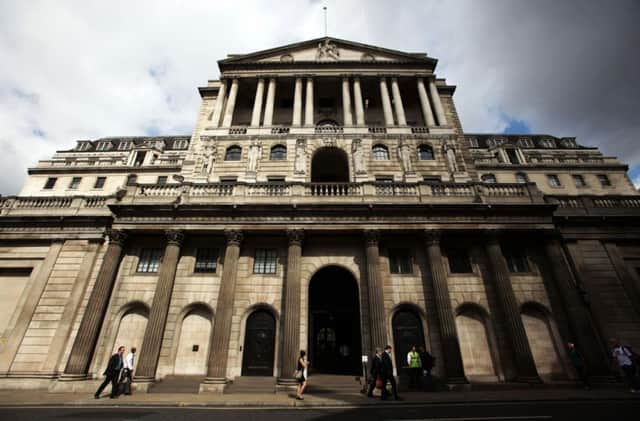Leaders: Carney can still bank on forward guidance


He wanted his long-term intentions for the economy to be out in the open, to help businesses with their long-term planning.
This was a good idea, but it was also a risk. However carefully arrived at, the forward guidance was always going to be vulnerable to changing circumstances. So when Mr Carney said last year that a fall in UK unemployment to 7 per cent would be the trigger to consider a rise in interest rates, he was putting a great deal of faith in the Bank’s economic modelling.
Advertisement
Hide AdAdvertisement
Hide AdIt now seems that he may have painted himself into a corner. Yesterday’s unemployment figures for the UK were down to 7.1 per cent, suggesting that Mr Carney might well reach his trigger point next month. And yet analysts doubt whether the Governor will follow through on his own guidance. The problem is that the economy as a whole is not acting in the way the Bank of England expected. In particular, the fall in unemployment has not been accompanied by a rise in inflation – not yet at any rate.
The main function of interest rate policy is to control inflation, so a rise in interest rates would not make sense when inflation is stable.
The bottom line is that the Bank’s prediction that the labour market would be a bellwether for the economy has been flawed. Yes, there are signs of economic health, but – with the worrying exception of the London housing market – the recovery has not yet changed up from a trot to a gallop.
Mr Carney may therefore be obliged to amend his forward guidance, which will be a little embarrassing so early into his tenure. A rate rise may yet be some way off.
Householders with a mortgage who are worried about a rise in interest rates might therefore be breathing a sigh of relief. But they would be foolish to think that they are safe for long.
There seems little doubt that the recovery is under way, and it is implausible that inflation will not, at some stage, rise with it. Putting aside recent problems with energy price rises, household bills have benefited from low interest rates and low inflation. This will not last.
Nor should it. Very low inflation is not the sign of a healthy economy. Interest rates cannot stay this low forever. Sooner or later, the cost of having a mortgage is going to rise – and in the current climate that has the potential to hurt a great deal of people.
But there is, of course, an upside. Savers have had a torrid time of it in recent years, with the value of nest-eggs flatlining or declining. An interest rate rise would see them share in the benefits of a recovering economy.
On balance, it seems that forward guidance is helpful.
Pryce reappointment is ill-advised
Advertisement
Hide AdAdvertisement
Hide AdTHERE is an aspect of the justice system that has always used shame as a weapon against crime. When someone considers whether they should break the law, a major disincentive is the damage it would do to their reputation if they were caught. This can be a powerful force in the preservation of public order.
Once an offender has served his or her sentence, society must strike a delicate balance. On the one hand, the rehabilitation of offenders act allows for people who have fallen foul of the law to redeem themselves. Everyone is allowed a second chance. And yet, if people were welcomed back into society with open arms and with no badge of shame, then the disincentive of a prison sentence would not be acting the way it could and should.
What then should we make of the UK government’s decision to reappoint Vicky Pryce to her role as an economic adviser to Cabinet minister Vince Cable?
Of course, hers was a relatively minor offence. It was – if you put aside the grievous damage it did to her family – a victimless crime. And the offence – taking points on her licence after her then husband Chris Huhne was caught by a speed camera – is not one that reflects badly on her undoubted skill as an economist. Furthermore, the post she holds is not enumerated by the taxpayer.
Nevertheless, what does it say about the integrity of the government that Ms Pryce should be accepted back into the bosom of respectability and power so quickly? The government, and politicians in general, need to reestablish their moral and ethical credibility – to be seen an exemplar of moral rectitude. Is hiring ex-felons as advisers the way to do that?